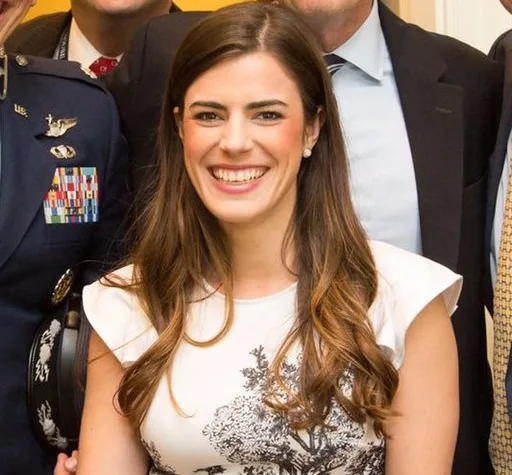Westerhout, a key figure in Trump’s white house, confirms Michael Cohen’s crucial Oval Office meeting, highlighting his role in reimbursing Cohen for hush-money payments
From the start of Donald Trump’s presidency, Madeleine Westerhout managed access to the Oval Office. As the executive assistant and then director of Oval Office operations, she meticulously organized Trump’s calls, meetings, and communications. On Thursday, Westerhout took the witness stand in Trump’s hush-money trial in Manhattan, providing significant insights into a pivotal 2017 meeting involving Trump and Michael Cohen, his former fixer.
Prosecutors questioned Westerhout about her proximity to Trump during her tenure and her knowledge of his routines. She stated that Trump frequently made calls as early as 6 a.m. and often met people in a small dining room near the Oval Office. Her testimony was vital in confirming Cohen’s February 2017 White House visit, a meeting crucial to the 34 felony charges Trump faces for falsifying business records.
Embed from Getty ImagesCohen, who paid Stormy Daniels $130,000 to keep silent about her alleged affair with Trump, claimed that he discussed reimbursement with Trump during their meeting. Afterwards, the Trump Organization began sending checks to Cohen, labelled as “legal expenses” under a retainer agreement. Prosecutors argue that no such agreement existed and that the checks were reimbursements disguised as legal fees.
Westerhout revealed that she had coordinated with Cohen via email to facilitate his entry into the White House for this meeting. Her role in managing Oval Office operations made her a crucial link between Trump and his visitors, ensuring Cohen’s access to the president.
Her name was briefly mentioned earlier in the trial when Rhona Graff, Trump’s longtime assistant at the Trump Organization, acknowledged her email exchanges with Westerhout. Cohen’s testimony has not yet been heard.
Despite her departure from the White House after sharing personal details about the Trump family with reporters in 2019, Westerhout maintains a favorable relationship with Trump. She later authored a book praising her time working for Trump. Today, she works at a consulting firm led by Robert O’Brien, Trump’s former national security adviser.
Analysis:
The presence of Madeleine Westerhout on the witness stand underscores her central role as the gatekeeper of the Trump White House. Her testimony provides critical evidence linking Trump directly to the hush-money payments made to Stormy Daniels through Michael Cohen. This trial’s broader implications encompass multiple perspectives.
Political Perspective:
Politically, Westerhout’s confirmation of Cohen’s Oval Office meeting bolsters the prosecution’s narrative that Trump was deeply involved in managing the fallout from Daniels’ allegations. This testimony may erode Trump’s credibility with undecided voters ahead of the 2024 presidential campaign. Additionally, her former proximity to Trump adds weight to the notion that she would be familiar with how he operated in sensitive situations, adding legitimacy to her statements.
Sociological Perspective:
Sociologically, this trial reflects how political power structures attempt to control damaging narratives. The hush-money payments exemplify efforts by individuals in power to silence allegations that could tarnish their image. Westerhout’s involvement highlights the dynamics of loyalty and secrecy within high-level political circles, illuminating how aides can become entwined in their leaders’ attempts to maintain a pristine public image.
Economic Perspective:
Economically, the trial scrutinizes the Trump Organization’s financial practices, revealing how legal fees can be manipulated to disguise questionable transactions. If Trump is found guilty of falsifying business records, the decision could have financial implications for his business interests. Furthermore, this case may influence how political organizations handle sensitive payments, potentially tightening legal scrutiny.
Gender Perspective:
From a gender perspective, this trial puts Stormy Daniels’ story at the centre, showing how powerful figures sometimes exploit women’s voices to suppress potentially damaging accounts. Westerhout’s testimony indirectly supports Daniels’ claims, emphasizing the lengths to which Trump’s associates allegedly went to cover up their interactions.
Race and Minority Perspectives:
While race plays less of a direct role in this trial, the proceedings demonstrate how power dynamics in politics and business can disproportionately affect minorities. The case shines a light on the need for transparent practices to prevent those without substantial resources from being unfairly silenced
